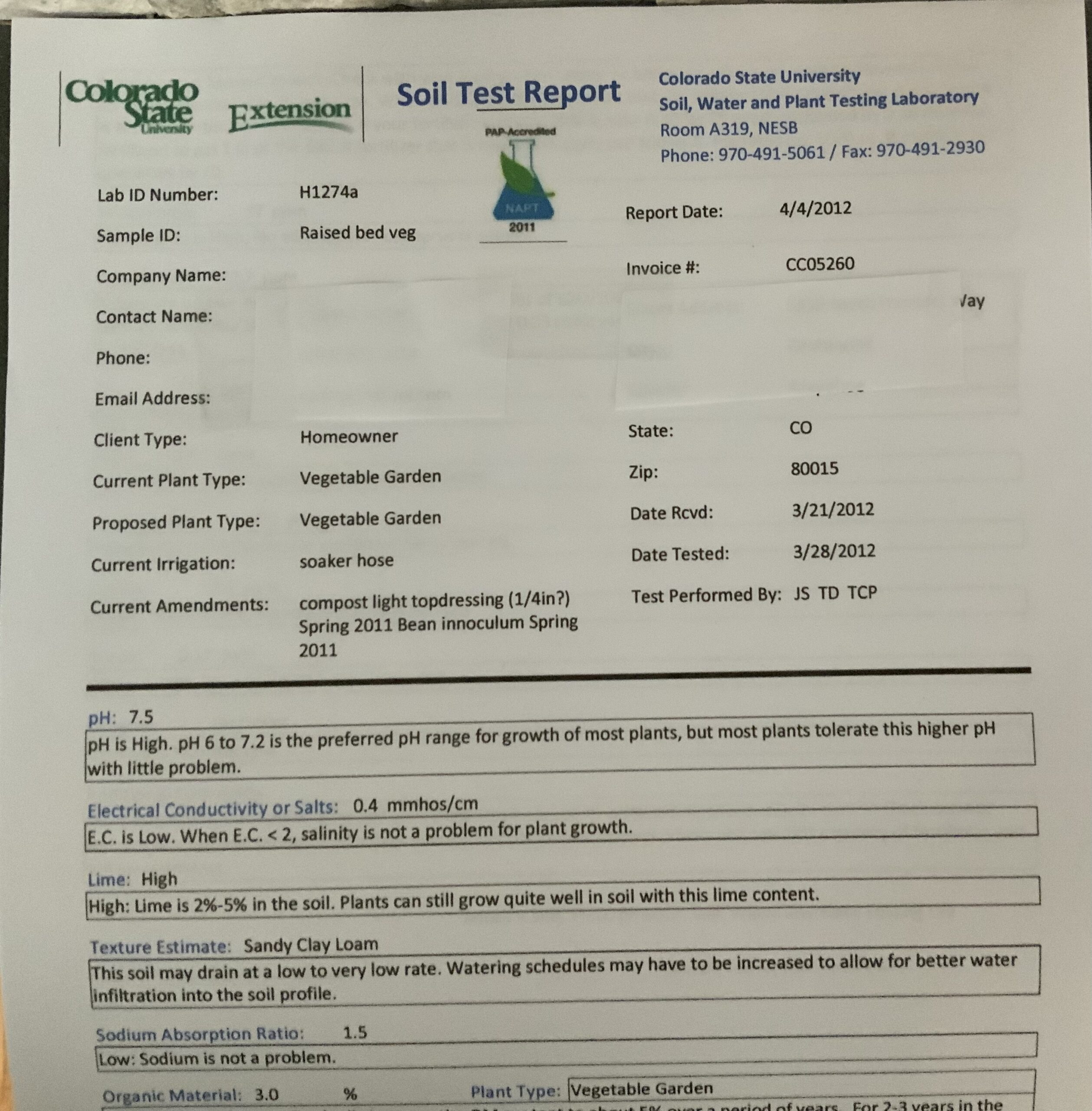Soil supplies plants with support, nutrients and water. Analyzing a sample of soil before planting can help a gardener or landscaper be more successful. Private companies and Colorado State University soil testing laboratory can test soil samples.
What do soil tests do?
Routine soil tests check for the conditions plants need to grow, such as the amount of fertilizer nutrients, but do not check for foreign soil contaminants such as petroleum products or pesticides.
A routine soil test evaluates the texture of a soil, which determines the way a soil drains. Typical textures are sand, clay or a mixture of the two. Tests also determine the percent of organic matter in the soil, a component important in the retention and release of nutrients to the plant. The pH test indicates how acidic or alkaline the soil is. Alkaline soils, or basic soils, contain water-soluble salts, and acidic soils are high in acids. The pH of a soil will affect the relative availability of certain nutrients to plants.
What do the results of my soil test tell me?
Test results indicate the amount of available soil nutrients including nitrate nitrogen, phosphorus, potassium, zinc, iron, copper and manganese. Lack of one of these nutrients could cause stunted growth or yellowing leaves in plants.
Additional tests determine the amount of salts in the soil, which, if too high, can stunt plant growth. Lime, gypsum and sodium levels are checked to aid in making salt management recommendations.
A soil test provides a glimpse into how a soil affects plant growth, but it is only one tool among many necessary to becoming a successful gardener.

For more information, see the following Colorado State University Extension fact sheet(s).



